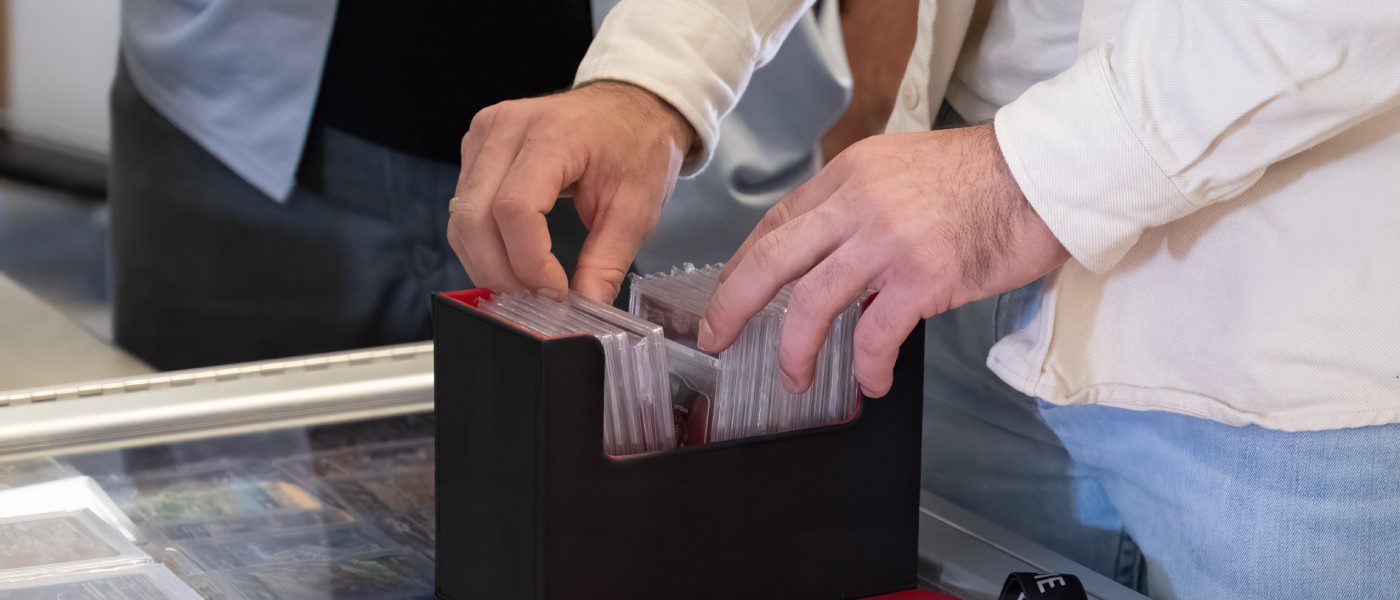You can avoid professional services for plenty of things, but is grading collectible sports cards one of them?
Knowing what your sports cards are worth does two things: it helps you get to know your cards and helps you sell them for a fair price. However, professional grading services are expensive.
Because of the high cost, you might be wondering if you can self-grade your collectible sports cards. Well, you’re in the right place! Here, we dive into the specifics, including whether it’s possible, why you would do it, and its limitations.
Short Answer—Yes, But . . .
Here’s the short answer: Absolutely, you can self-grade your collectible sports cards! There’s nothing stopping you. As long as you have the equipment and the time, you can evaluate your cards’ conditions and assign them ratings based on industry standards.
However, self-grading is not a replacement for professional grading. Below, we cover the benefits of self-grading and compare those to the reasons why professional grading is still important.
Reasons To Self-Grade Your Cards
There are several valuable reasons to grade your own cards.
Your Collection Is Just for You
If your card collection is for you and no one else, then by all means—grade your own cards! Unless you crave the professional confirmation of your cards’ values, there’s no point spending a pretty penny on grading if you’re not going to sell.
You Can Confirm Professional Grading Quality
Self-grading can be a great thing to do before sending your cards off to the professionals. Doing so gives you a general idea of what the experts should say about your cards, helping you be an informed customer. If you get a grade that is much higher or lower than you expected, you can inquire as to why.
Additionally, in the extremely rare event that a grader damages your card, you will have evidence from the card’s prior condition to support your claim.
You’ll Gain a Skill
Grading is a skill, and it never hurts to have a few extra of those in your back pocket. By teaching yourself how to grade cards, you have a fun party trick and a useful talent to help yourself and your friends with.
Why Professional Grading Is Still Necessary
Now let’s dive into why professional grading is still necessary in most cases.
Buyers Trust Professional Grading
Collectors prefer professionally graded cards because they serve as trusted benchmarks for a card’s condition. Even if your grading is the same as an expert’s, you don’t have the certification to back your assessment. Buyers want this certification, as it’s foolish to spend a lot of money on a card that a trusted institution didn’t vet for quality and authenticity.
For example, let’s say you have one of the most valuable 1970s basketball cards. If you want to sell it, a buyer isn’t going to trust an amateur rating before dropping thousands of dollars. When you receive a card graded by a reputable service like PSA, BGS, or SGC, you and your buyers gain peace of mind.
Professionally Graded Cards Fetch Higher Prices
Moreover, graded cards sell for higher prices than ungraded ones. Professional validation gives you the right to sell your cards for everything they’re worth.
It Removes Bias
We get it, bro—you’re attached to your cards. Men love collecting things, and these things have personal value beyond their technical grade.
However, if you want a fully honest and accurate assessment, you’re not the person to do it. Unless you’re not going to sell, professional grading is essential to remove bias.
Conclusion
Here’s the crux of it all: you can self-grade your collectible sports cards, but it’s not a replacement for professional grading. If you’re going to sell your cards, send them to an expert.


